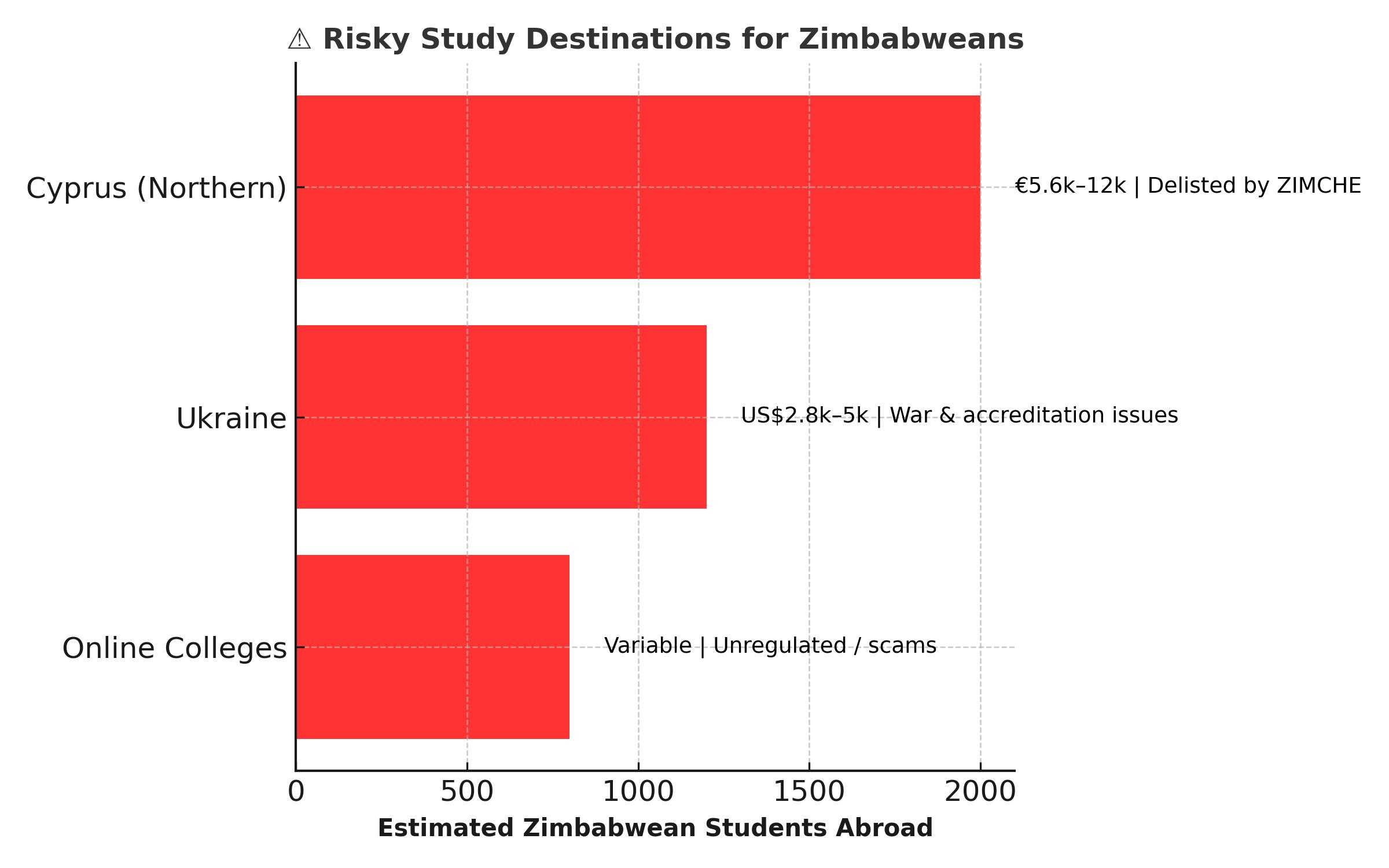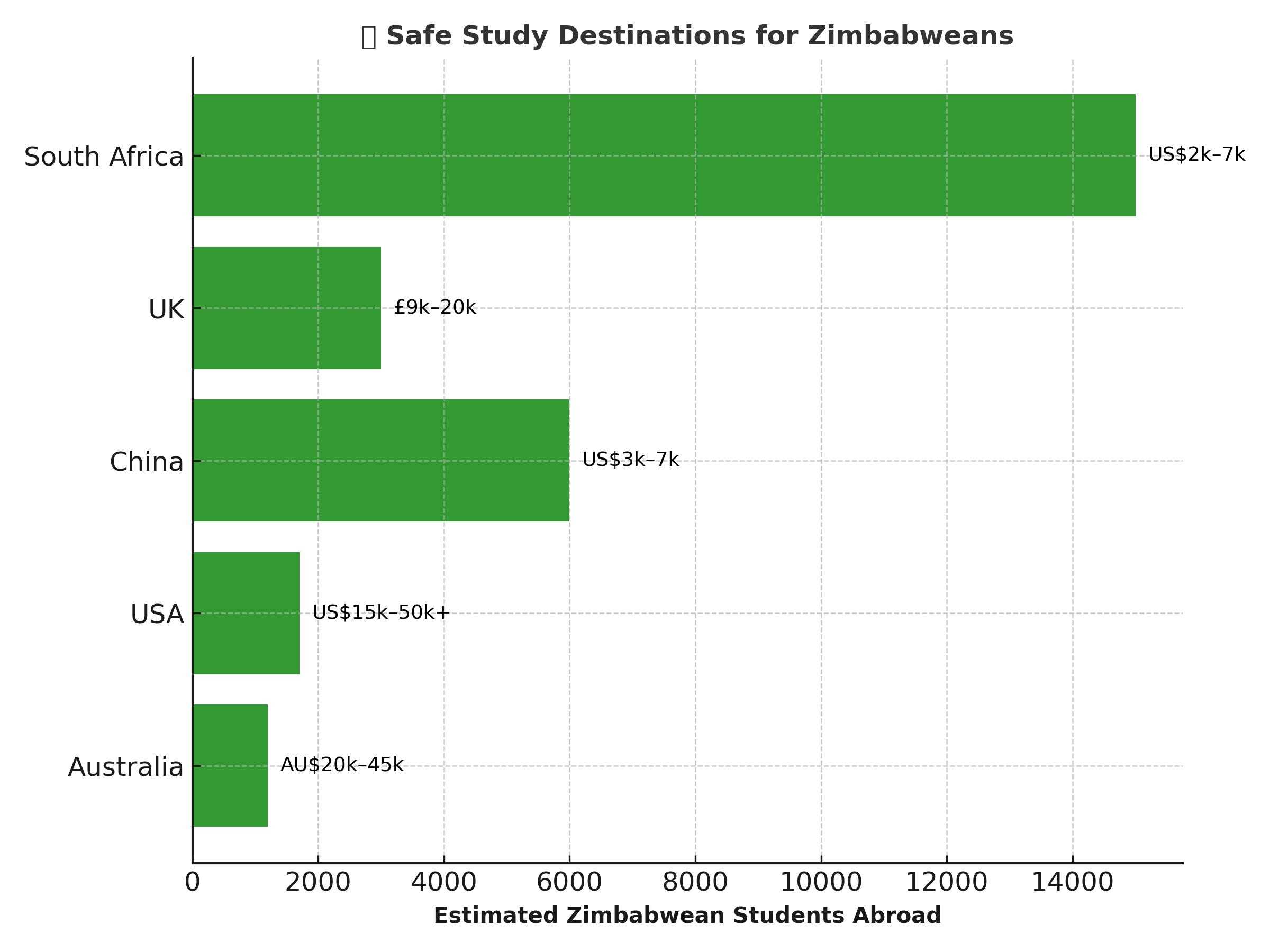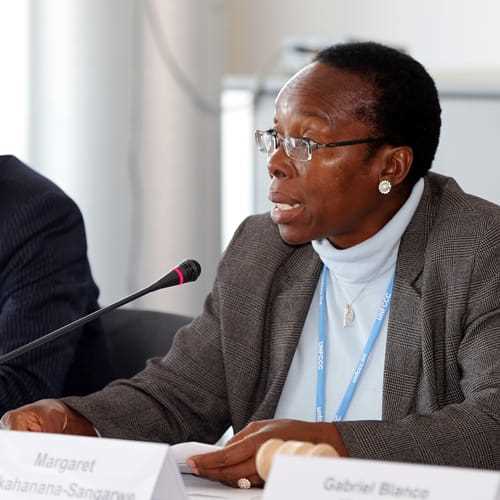
Witness Runodada - ZimNow Reporter
The Zimbabwe Council for Higher Education has issued a strong warning to parents and students against enrolling in unaccredited foreign universities due to growing reports of Zimbabweans returning with qualifications that are not recognized locally.
ZIMCHE director Professor Kuzvinetsa Peter Dzvimbo said families were losing hard-earned money to institutions that lack proper standing: “Parents must verify the accreditation status of any university before paying fees. Many families are losing money to bogus institutions.”
The caution comes as the appetite for foreign education continues to surge, driven by criticism of local universities over outdated curricula, overcrowding, and underfunding.
More than 20,000 Zimbabwean students are abroad, according to World Bank data, with South Africa hosting the majority, while thousands more study in the UK, US, China, and Australia. Zambia is also now seeing a high number of enrollments by Zimbabwean students, especially in the medical field.
Degrees from these mainstream destinations are generally recognized in Zimbabwe, provided the institutions are accredited in their own countries.
Related Stories

By contrast, ZIMCHE has raised concerns over enrollments in less regulated markets such as Cyprus, Ukraine, and some online colleges, where students often discover only upon return that their degrees carry no weight.
Fees at such institutions can range from US$2,800 a year in Ukraine to more than €12,000 in Cyprus for medicine programs—sums that many Zimbabwean families can ill afford to lose.
The regulator has in the past deregistered several foreign universities—including Girne American University, University of Nicosia, Near East University, and European University of Lefke (Cyprus)—from its approved list.
While some of these were linked to questionable standards, in other cases the issue was procedural. Parul University of India, for example, is a legitimate Indian university recognized by national authorities and hosting thousands of international students. Its delisting appears tied to affiliation renewals with ZIMCHE rather than academic quality, and reaccreditation was said to be underway at the time of deregistration announcement in 2024
Analysts say the episode underscores the need for government to reinvest in local higher education. “If Zimbabwe’s universities offered modern facilities and competitive programs, students would not seek shortcuts abroad,” said education analyst Tapiwa Makoni.
Families are urged to check both the host country’s quality regulator and ZIMCHE’s own notices before committing thousands of dollars to overseas degrees that may turn out worthless at home.




















Leave Comments